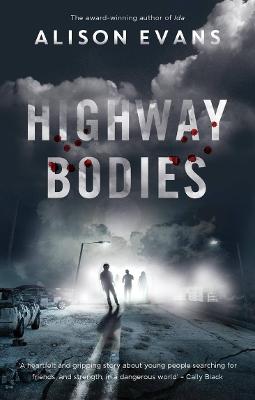
Kelly
Written on Feb 9, 2019
Imagine rendered defenceless as your father decimates his family. Your only solace is nestled within the large topiaries masquerading as sentinels in your garden. The deceased faltering throughout the streets as you hear a young woman, a survivor needing assistance.
Poppy, Jack, Zufan and Dee are enjoying their freedom, composing and performing among the cicadas of their ramshackle cottage as communications go down. Venturing into the nearest town, the roads are abandoned, blood congealing on pavements.
These three narratives sharing a common ambition, to survive.
The narrative is experienced through three perspectives and although taking place throughout a terrifying outbreak, it centres upon the survivors. Resilient adolescents that are adapting to their new environment. It's survival against humanity. Throughout their journey, the adolescents are consistently challenged by morality and the debris of human life, dangerous adults recruiting survivors and demanding idolisation under the guise of protection. It soon becomes apparent that it's the living that should be feared.
The diversity of characters is wonderful, various identities, cultural backgrounds, genders and pronouns, all wonderfully representative of a multicultural and diverse Melbourne landscape. Genderqueer, bisexual, transgender, lesbian, Ethiopian, Pakistani she and they pronouns, facial scarring and amputated fingers. As each character introduces themselves, they also offer their pronouns. A wonderful and inclusive gesture, being that pronouns are also our own individual identities.
The prose is striking. The discourse and interactions allow readers to empathise with characters, their terror and sorrow is palpable. As a debut, Alison's IDA was brilliant and a wonderful precedent of how authors can write diversely. Alison Evans' writing has matured and flourished, their vibrancy shining throughout the narrative by enthralling and captivating readers until the final page.
